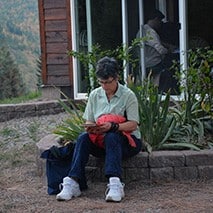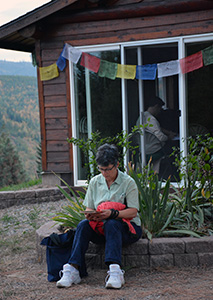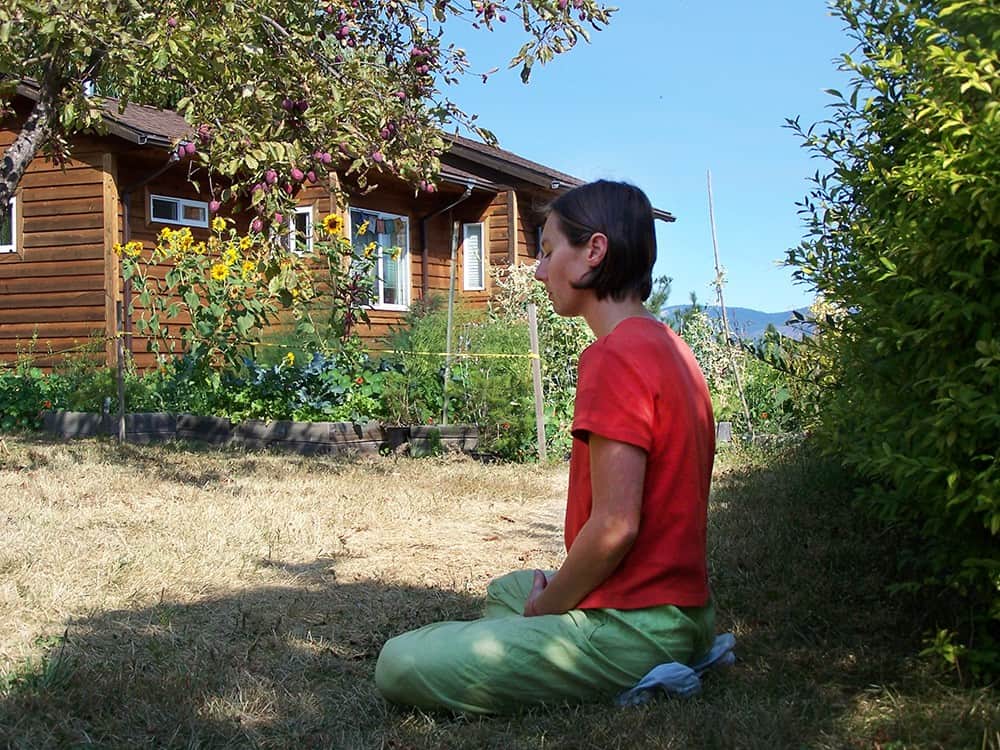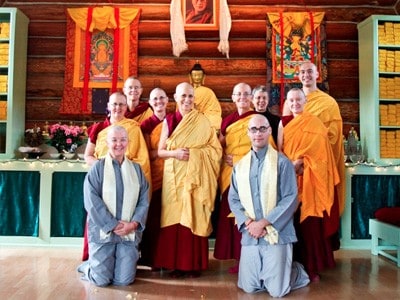Advice for someone considering ordination

Max’s letter
Dear Venerable Thubten Chodron,
As you know, I want to become a Buddhist monk. I have wanted to for over a year and a half and have become a sramanera for seven days to test the waters. I feel very torn living at the Dharma center where I currently am. There are no monks or nuns and, while I’ve studied the Dharma, I haven’t yet found a guru.
The center is a very busy place. I have many responsibilities and often don’t make the time for meditation practice. The center is disorganized. I prefer a simple, clean lifestyle and I have aversion to the mess. On occasion I will have a meltdown and complain saying, “There is too much to do! There is no peace around here! When do we get to listen to Dharma teachings?” At the same time, I understand that this is just samsara and my craving is the real problem and that perfect conditions don’t exist in samsara.
I loved my week as a monk, and I love the sangha very much. I sincerely wish to live the life of a monk. However, it may be because I have this huge aversion to the life of a layperson, with so many duties. How can I resolve this conflict within myself? On the one hand I’ve been praised for my desire to ordain, but on the other hand I’ve been told that I shouldn’t have such aversion to the life of a layperson. I feel very confused!
I can see the need for a change in my life. When is it appropriate to make a change? When is it appropriate to stay and keep at it?
I don’t want to whine about these things, and know that the path to enlightenment is to stop whining and think about others. However, how am I to help others if I’m so confused? I’m doing the only thing I can and that’s to take refuge in the Buddha, Dharma and Sangha, so I’m asking you, the sangha, to please help me.
Thank you for reading my question. I hope it makes sense to you. May you be well and happy!
Yours in the Dharma
Max (not actual name)
Venerable Thubten Chodron’s response
Dear Max,
What you wrote makes sense to me (that is, if I understood you correctly!). Regarding your hesitation to ask for advice, it’s good to think about things ourselves, and if we come to a point where we’re too confused to sort things out, then it’s wise to ask for advice. After receiving the advice, think about it and see if it makes sense to you. If it does, then put it into action. If it doesn’t, then ask more questions and think some more. Sometimes we’re still unable to gain clarity, and in that case, it’s better not to make a decision but to put the whole issue on the back burner. Come back to it a month, year (or whenever) later, without forcing ourselves to decide.

It’s important to make sure we have Dharma time each day–to meditate in the morning and to either meditate, read, or study in the evening. (Photo by Traci Thrasher)
That’s about process. Now about content. It’s very common in Dharma centers in the West (and sometimes monasteries in the East) that there’s so much to do that people don’t seem to have time for the Dharma. I think it’s important to make sure we have Dharma time each day—to meditate in the morning and to either meditate, read, or study in the evening. In other words, we work efficiently when we work, but we arrange our daily schedule so we don’t get stressed out or burnt out from working too hard or too long. For example, at Sravasti Abbey, we have morning and evening meditation sessions that everyone attends. We do not work during those times. In addition, there is an hour and a half for Dharma study or teachings in the morning. We generally keep to that, but once in a while an important project comes up and we miss it. But we try not to miss it too often. Furthermore, we take a day off each week to rest. If the center where you live has a daily schedule like this, keep to it. If not, then make a schedule for yourself and keep to it. You may have to restrain your own inner pressure to work more (I’m a Dharma workaholic and have to restrain myself).
A monastic or someone aspiring to become a monastic should have aversion to the life of a householder. The meaning of “aversion,” however, is key. It’s not aversion in the sense of “I don’t like to work; I’d much rather lay around” or “I’m afraid I won’t be able to make it in the world so I want to become a monastic.” Not like that. Rather it’s aversion in the sense of “I have a precious human life which won’t last forever. I don’t want to waste it doing useless activities motivated by a self-centered attitude. I want to spend my time on the Dharma—studying, practicing, serving others—not on having a relationship, raising kids, climbing the corporate ladder, etc.” Thus, it’s aversion to living in situations where we create negative karma or lack the opportunity to practice, no matter how pleasant and desirable those situations may appear to society in general.
A monastic or aspirant also needs to have the correct idea of what monastic life is like. In a one-week program, you may spend most of the time meditating and practicing. That’s great. But when one is a monastic for life, it seldom happens that one has the opportunity to do formal Dharma all day long (except during periods of retreat). In a community, everyone has some chores and some job to do that helps the community to function, the Dharma to be spread, etc. Someone needs to cook, clean, answer correspondence, do the accounting, organize activities for visitors, lead meetings, record and edit teachings, do the bookkeeping, fix the toilet, pull weeds, fix the roof, work with the architect, create a system for the library, etc. In that sense, a monastic may find him or herself doing some daily life work similar to what he or she did before ordination (or he or she may learn new practical skills). However, we generate bodhicitta in the morning and do this work as part of offering service to the sangha and in that way, it becomes part of our practice. In addition, we use our Dharma practice to deal with what comes up in our minds working with other people. In other words, by living with others we learn about our own stuff and have the chance to let go of old habits and establish new ones.
You asked when it’s appropriate to make a change. That really depends on each situation and the circumstances around it. Sometimes we need to hang in there when things are difficult and go through it. This may be especially useful (and especially difficult) if we have the habit of splitting whenever there is conflict or difficulty. On the other hand, if a certain situation isn’t a productive one for us to live in, or if our mind is overwhelmed by afflictive emotions living there, then a change of environment is wise. It gives us space to look at our minds in a different way and to relax the stressed out mind. We need to be gentle with ourselves without being self-indulgent. We need to be firm with our “garbage mind” without pushing.
Hope this helps. All the best,
Ven. Chodron
Venerable Thubten Chodron
Venerable Chodron emphasizes the practical application of Buddha’s teachings in our daily lives and is especially skilled at explaining them in ways easily understood and practiced by Westerners. She is well known for her warm, humorous, and lucid teachings. She was ordained as a Buddhist nun in 1977 by Kyabje Ling Rinpoche in Dharamsala, India, and in 1986 she received bhikshuni (full) ordination in Taiwan. Read her full bio.


